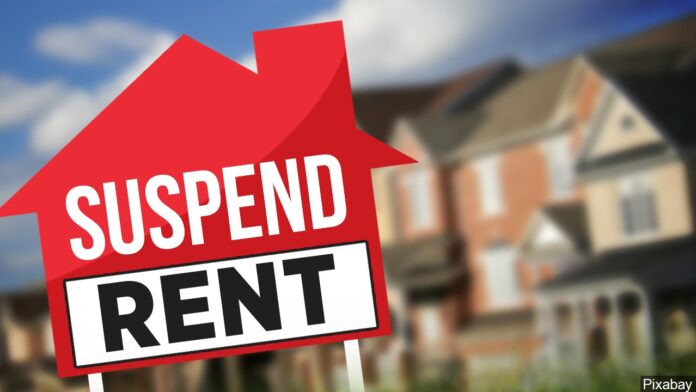At the end of April, the Texas Supreme Court ordered a statewide moratorium on eviction hearings until May 18. That order ended on Monday and according to local attorneys, the number of evictions locally is expected to steadily rise as tenants left in a variety of challenging COVID-related financial circumstances aren’t able to pay rent.
In a press release circulated at the end of April, State Senator Eddie Lucio, Jr.’s office applauded Gov. Greg Abbott and the Texas Department of Housing and Community Affairs for successfully obtaining federal waivers to provide rental assistance to Texans struggling due to the pandemic.
The move made $11.3 million available to provide individual tenants with up to 100 percent of the cost of rent, security deposit payments, and utility bills, to be distributed by HOME Tenant Based Rental assistance to qualifying Texans. Many renters are still falling through the cracks. While the federal CARES Act included relief for tenants in federally subsidized housing or property owners with federally-backed mortgages and relief for tenants in those properties, it does not cover everyone.
People working in professions like home healthcare, hospitality, and other severely impacted industries have taken economic hits, meaning many tenants in the Rio Grande Valley haven’t been able to pay rent and perhaps won’t be able to pay on June 1, either. “We have a lot of people with mixed-status families,” said Sikes.
Citizens married to undocumented immigrants are not eligible for the checks, compounding the crisis for some of the Valley’s most vulnerable residents. As Sikes explained, the prevalence of informal leasing arrangements locally is another factor likely to have an effect on eviction rates at the moratorium lifts.
Attorneys at Texas RioGrande Legal Aid want renters to know that there are options available in the event of unlawful evictions. Prior to the May 18 deadline, the Supreme Court’s eviction moratorium required landlords to post a thirty-day notice to vacate versus the traditional three-day notice under Texas law. Officials cannot force tenants to leave or issue 24-hour removal notices until after May 25. Under the CARES Act, notices to vacate in federally subsidized properties cannot issue until July 25.
“We think there are probably a lot of landlords, and certainly tenants, that don’t know whether or not they’re living in a house that has a federally-backed mortgage. The landlord may not even know — perhaps they do, perhaps they don’t,” said Sikes. “We suspect that around 30 percent of rental housing in Texas may fall under the CARES Act protection.”
Renters covered under the CARES Act include those living in properties with federally-backed mortgages, public housing, Section 8 voucher or project-based Section 8 housing, and other federally subsidized housing. TRLA recently created an interactive, online map based on data sites of Fannie May and Freddy Mac mortgage holders to track where these properties are located throughout Texas.
The organization is encouraging residents to take a look. “If they get a notice to vacate or are served with a citation or petition for eviction, they should check and see if they’re covered by the CARES Act because that process shouldn’t be moving forward until after July 24,” said Sikes. The map isn’t fail-proof. If someone has a housing voucher — like a Section 8 voucher, in which private-market units are subsidized — they’re protected by the CARES Act because they’re receiving federal funding, though the information won’t show on the map.
Sikes said the organization has documented a few evictions, both formal and informal, and urged anyone forced out of their home to assert their tenant rights and take the necessary legal steps to ensure the landlord is held responsible. If you don’t have a written lease, that’s ok, because the law recognizes verbal leasing arrangements, too, he said.
Resources are available through TRLA and tenants can exercise a rights including, but not limited to asking a Justice of the Peace to intervene to allow re-entry or order utilities turned on, informing the police they’ve been improperly removed, or asking a small claims court to give a judgment.
Texas legal aid organizations assisting low-income people with their housing needs in the RGV include TRLA (serving South and West Texas) and Texas Legal Services Center (statewide).
For print edition readers, the map tool can be accessed at this link: https://trla.maps.arcgis.com/apps/Nearby/index.html?appid=1932f764d9254e9ebc28258d74cc8cbb.





